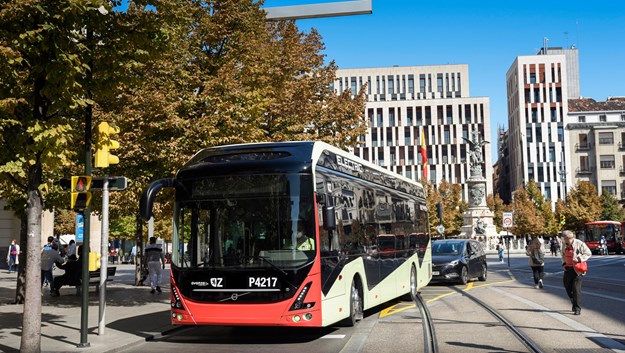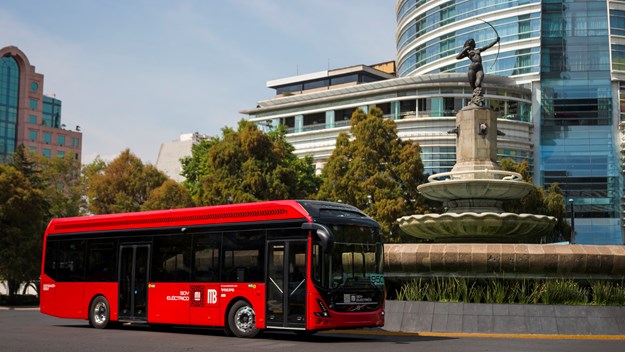With the impending official launch of the BZL electric bus chassis into the Australian market, current Volvo e-bus testing overseas in varying temperature conditions should provide somewhat insightful to local operators here.
Recent European Volvo e-bus summer-operation trials in the Norwegian town of Bodø are the first to provide scheduled services north of the Arctic Circle. Simultaneously, Volvo is also testing its electric buses in warm climates as part of challenging test programs in Spain and Mexico, amongst other places, it confirms.
“As one of the leading global suppliers of solutions for electric mobility, we must be able to meet our customers’ requirements and expectations regardless of where they operate,” said Marie Carlsson, director Citymobility Business Development at Volvo Buses.
“That applies not only to environmental considerations, but also availability, passenger comfort and safety.
“We test our products together with our customers in Arctic conditions and in warm climates to ensure that we have the best solutions for a range of different requirements,” she said.
For example, during 2020 the fully electric Volvo 7900 electric bus was tested in Spanish cities, including Zaragoza, Santander and Madrid, where the ambient temperature during the test period sometimes exceeded 40°C, the company says. This made it possible to investigate in practice how the energy usage of the buses was affected by using the air conditioning to full capacity, it explains.
RELIABILITY
“Our buses performed well, and we were able to demonstrate that they are extremely reliable even in very hot climate conditions,” said Francisco Unda, managing director of Volvo Buses in Spain and Portugal.
The cities of Madrid, Barcelona, Valencia, Bilbao, Seville, etc. are all expected to begin electrifying their public transport systems in the near future, Volvo Buses states.
“We at Volvo Buses are ready to offer electrified solutions with different charging methods and service packages to the cities that want to start the move towards more sustainable public transport,” Unda stated.
FURTHER TESTS
In North America, a Volvo 7900 electric bus is currently also being tested in the busy Metrobus system in Mexico City. It will be in operation for six months and then the experiences from this trial period will be evaluated, Volvo says.
“The results of the tests will pave the way for the rapid electrification of public transport throughout the world,” said Carlsson.
“We have turnkey solutions that include everything from quiet, zero-emission buses to the charging infrastructure and servicing.
“This means that we can help to improve the living environments and lay the foundations for cities all over the world to become more sustainable.”
Volvo Buses has already supplied more than 6,500 electrified buses to cities worldwide, the company explains. Its product range includes self-charging hybrids and fully electric buses, it states.
In addition to the buses themselves, Volvo’s electric mobility offering includes battery optimisation, charging infrastructure, servicing and maintenance, it adds.
Photography: Volvo Bus Europe





.jpg)